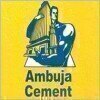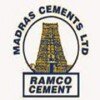Filter interviews by
Sagar Cements Technical Engineer Interview Questions and Answers
Sagar Cements Technical Engineer Interview Experiences
1 interview found
Interview Questionnaire
1 Question
- Q1. What is meant by cement concrete ?
- Ans.
Cement concrete is a composite material made of cement, water, fine and coarse aggregates, and sometimes admixtures.
Cement concrete is a widely used construction material.
It is formed by mixing cement, water, and aggregates like sand and gravel.
The cement acts as a binder, holding the aggregates together.
Water is added to initiate the chemical reaction that hardens the mixture.
The aggregates provide strength and stabil...
Interview Preparation Tips
Top trending discussions






Interview questions from similar companies

I appeared for an interview in Jul 2020.
Interview Questionnaire
1 Question
- Q1. Process parameters, fan flow calculation quality related questions
Interview Preparation Tips
Process parameters flow calculation etc.

I applied via Referral
Interview Questionnaire
1 Question
- Q1. M 20 and m30 Difference ,Target mean strength , density , about working routine
Interview Preparation Tips
And very fast response by hr team, On same day They response me,

I applied via Referral and was interviewed in Feb 2022. There were 4 interview rounds.

(1 Question)
- Q1. About my self and Expectations!
(1 Question)
- Q1. Previous working experience, and all about your working related in previous company,
(1 Question)
- Q1. Negotiation on Salary.
Interview Preparation Tips
Best of Luck ?

I applied via Walk-in and was interviewed before May 2021. There were 2 interview rounds.
(1 Question)
- Q1. Self introduction only
(1 Question)
- Q1. Basic of technical knowledge &:market details
Interview Preparation Tips

I applied via Recruitment Consultant and was interviewed before Aug 2022. There were 2 interview rounds.

(2 Questions)
- Q1. Tell about yourself and experience
- Q2. Technical round with in depth questions

I applied via Naukri.com and was interviewed before Mar 2021. There were 4 interview rounds.
Technical questions related to domain.
(1 Question)
- Q1. What is carbonation.
- Ans.
Carbonation is the process of dissolving carbon dioxide gas in a liquid.
Occurs naturally in carbonated mineral water
Used in the production of carbonated beverages
Can affect the pH of a liquid
Can cause corrosion in concrete structures
(6 Questions)
- Q1. What is your family background?
- Q2. What are your salary expectations?
- Q3. Why should we hire you?
- Q4. Why are you looking for a change?
- Q5. What are your strengths and weaknesses?
- Q6. Tell me about yourself.
Pratical test by Auto level.
Interview Preparation Tips

I applied via Approached by Company and was interviewed in Feb 2024. There was 1 interview round.
(2 Questions)
- Q1. Cement type and physical properties
- Ans.
Cement types vary based on physical properties such as strength, setting time, and composition.
There are different types of cement such as Portland cement, slag cement, and fly ash cement.
Physical properties include compressive strength, setting time, and fineness.
Composition of cement includes clinker, gypsum, and other additives.
Different types of cement are used for specific applications such as construction, road b
- Q2. Concrete technology

(1 Question)
- Q1. About cement Properties
Interview Preparation Tips

I applied via Walk-in and was interviewed in Apr 2022. There were 2 interview rounds.
(1 Question)
- Q1. Civil engineering suject questions
(1 Question)
- Q1. Regarding the job, And instructions about us.
Interview Preparation Tips
Tell us how to improve this page.
Sagar Cements Interviews By Designations
- Sagar Cements Manager HRD Interview Questions
- Sagar Cements Area Sales Officer Interview Questions
- Sagar Cements Sales Officer Interview Questions
- Sagar Cements Assistant Manager Interview Questions
- Sagar Cements Assistant Manager Safety Interview Questions
- Sagar Cements Technical Engineer Interview Questions
- Sagar Cements Junior Engineer Interview Questions
- Sagar Cements Supervisor Interview Questions
- Show more
Interview Questions for Popular Designations
- Technical Lead Interview Questions
- Technical Support Engineer Interview Questions
- Technical Specialist Interview Questions
- Member Technical Staff Interview Questions
- Technical Analyst Interview Questions
- Technical Consultant Interview Questions
- Technical Architect Interview Questions
- Senior Technical Lead Interview Questions
- Show more
Interview Questions from Similar Companies
|
Assistant Engineer
55
salaries
| ₹2.2 L/yr - ₹6 L/yr |
|
Assistant Manager
51
salaries
| ₹5.5 L/yr - ₹10.6 L/yr |
|
Engineer
30
salaries
| ₹4 L/yr - ₹7.1 L/yr |
|
Officer
27
salaries
| ₹4 L/yr - ₹6.6 L/yr |
|
Senior Officer
24
salaries
| ₹5.4 L/yr - ₹8.8 L/yr |

JK Cement

ACC

Ambuja Cements

The Ramco Cements
- Home >
- Interviews >
- Sagar Cements Interview Questions >
- Sagar Cements Technical Engineer Interview Questions










